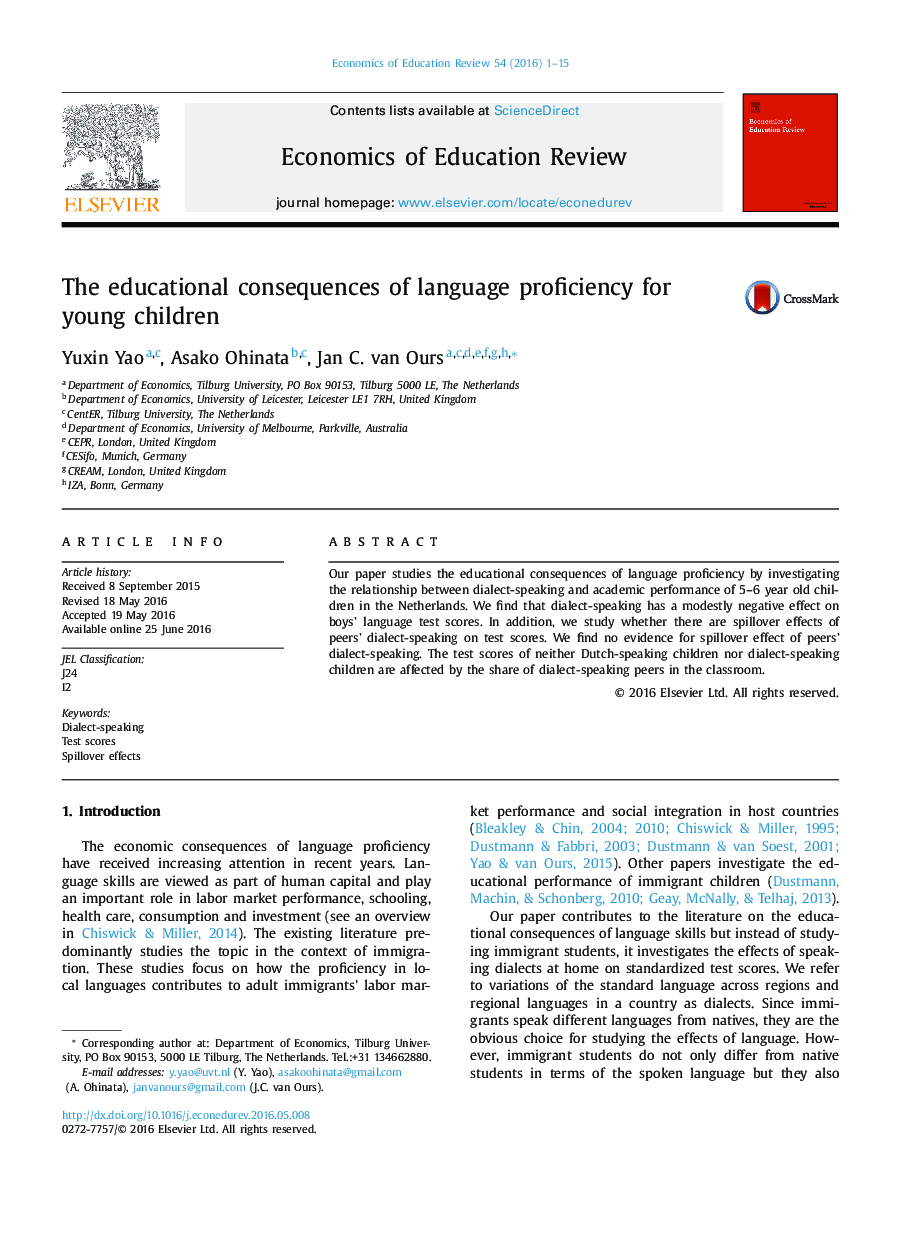| Article ID | Journal | Published Year | Pages | File Type |
|---|---|---|---|---|
| 354233 | Economics of Education Review | 2016 | 15 Pages |
•This paper studies the educational consequences of language proficiency.•We study the relationship between dialect-speaking and academic performance of 5–6 year old children in the Netherlands.•We find that dialect-speaking has a modestly negative effect on boys’ language test scores•We study whether there are spillover effects of peers’ dialect-speaking on test scores.•We find no evidence for spillover effect of peers’ dialect-speaking.•The test scores of Dutch-speaking children are not affected by the share of dialect-speaking peers in the classroom.•The test scores of dialect-speaking children are not affected by the share of dialect-speaking peers in the classroom either.
Our paper studies the educational consequences of language proficiency by investigating the relationship between dialect-speaking and academic performance of 5–6 year old children in the Netherlands. We find that dialect-speaking has a modestly negative effect on boys’ language test scores. In addition, we study whether there are spillover effects of peers’ dialect-speaking on test scores. We find no evidence for spillover effect of peers’ dialect-speaking. The test scores of neither Dutch-speaking children nor dialect-speaking children are affected by the share of dialect-speaking peers in the classroom.
